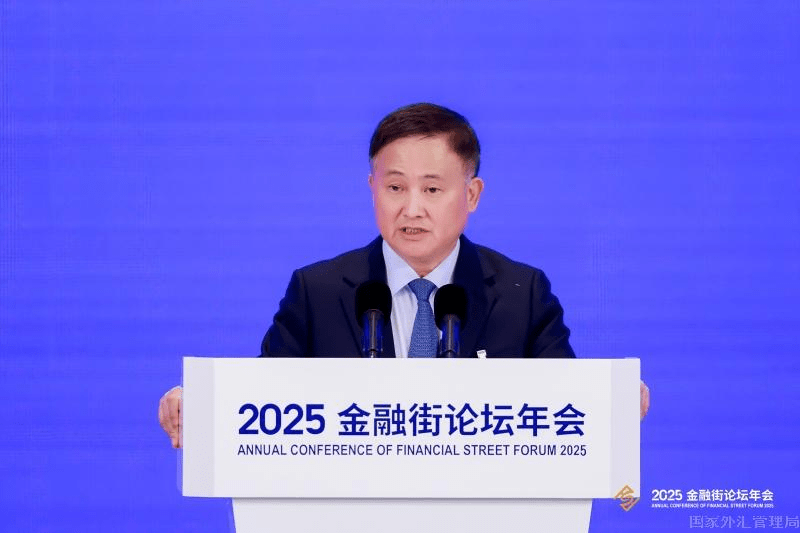according to the materials of the site - By Cointelegraph

China has finally dispelled rumors following the speech of the head of the People's Bank of China, Pan Gongsheng, at the annual financial conference in Beijing.
After the licensing regime for stablecoins came into effect in Hong Kong in August, several companies, including those from mainland China, applied for licenses in the city. This move sparked rumors that Beijing may be preparing to ease its long-standing ban on cryptocurrencies.
However, Pan indicated that no changes are anticipated. Referring to a series of bans introduced since 2017, he stated that the current policy remains in effect.
Pan stated that the People's Bank of China will continue to work with law enforcement to curb operations and speculation involving virtual currencies in China.

Although Pan did not announce any tightening of controls, he warned that the position of central banks has not changed.
Pan also criticized stablecoins, calling them underdeveloped and high-risk. He warned that they do not meet the main requirements for combating money laundering and create loopholes related to illegal cross-border transfers and terrorist financing.
Pan characterized the People's Bank of China's approach to stablecoins as a risk monitoring system, stating that the central bank will closely monitor and dynamically assess the development of offshore stablecoins.
Although the People's Bank of China has previously discussed digital assets in the context of risk management, Pan's statement was the clearest in recent months, confirming that bans on cryptocurrencies in China remain in effect despite the tumultuous growth of institutional adoption and demand worldwide.
Swiss company Secured Finance AG, which develops cryptocurrencies, launched a new product suite based on JPYC, a stablecoin backed by the Japanese yen, aiming to open the Japanese interest rate market for decentralized finance (DeFi).
The company stated that this initiative creates fixed-rate lending markets denominated in JPYC to form an on-chain yield curve for the yen.
The development is based on the launch on Monday of JPYC, the first licensed Japanese stablecoin backed by the yen, which effectively opens access to the yen's financial ecosystem for DeFi applications.
The Japanese yen is not just an internal currency; it is a global benchmark for interest rates. By supporting JPYC and moving the yen yield curve onto the blockchain, we are building a new bridge between traditional financial markets and DeFi," wrote Masa Kikuchi, founder and CEO of Secured Finance, in a blog.
The yen plays a key role in global finance due to the consistently low interest rates in the country, making it a preferred funding currency for investors engaging in carry trading in yen, borrowing cheap yen to invest in high-yield assets.
When this trade operates smoothly, it stimulates global liquidity and risk appetite. However, in mid-2024, a sharp strengthening of the yen triggered a reduction in carry trade positions, leading to a shift towards risk assets, including bitcoin.
Singapore's DBS Bank and Goldman Sachs entered into an over-the-counter (OTC) cryptocurrency options deal that they call the first of its kind between the two banks.
According to DBS, this deal, which includes options for bitcoin and ether with cash settlements, allows companies to manage risks associated with their cryptocurrency exposures.
DBS is the largest bank in Southeast Asia by asset size, with a total volume exceeding $600 billion, according to S&P Global. The bank became one of the first financial institutions in Singapore to obtain a cryptocurrency license in 2021 through its subsidiary DBS Vickers.
DBS was founded by the Singapore government in 1968 and went public on the Singapore Exchange in 1999. About 72% of DBS's shares are publicly owned. The Singapore government, through its 100% investment company Temasek, owns more than 28%.
Meanwhile, Goldman Sachs entered the top twenty largest banks in the world according to S&P Global with assets exceeding $1.6 trillion.
The volume of cryptocurrency transfers between South Korean exchanges and the Cambodian Huione Guarantee — a platform linked to a sanctioned criminal network — surged nearly 1400 times in just one year, raising concerns about potential money laundering through the digital asset market.
According to local news agency Yonhap, data provided by the national financial regulator to Deputy Lee Yang-so showed that cryptocurrency transactions between the five largest Korean exchanges Upbit, Bithumb, Coinone, Korbit, and Gopax and Cambodia's Huione Guarantee amounted to 12.8 billion won (about $9 million) in 2024, significantly more than just 9.22 million won in 2023.
Huione Guarantee is a subsidiary of Huione Group, which has been sanctioned by the US and the UK as a transnational criminal organization accused of laundering money obtained from online fraud and cyber theft.
The sharp rise in cross-border cryptocurrency transfers occurred against a backdrop of growing public outrage in South Korea due to a wave of crimes involving its citizens in Cambodia, including kidnappings, forced labor, and the recent death of a university student.
#MarketRebound , #Сryptomarketnews
If this format of communication seems convenient and interesting to you, you can subscribe to our feed yourself or share an informative article that you liked with your friends and acquaintances!!!
Read with pleasure and analyze independently everything that can help you draw YOUR own conclusions before making financial decisions!!!



